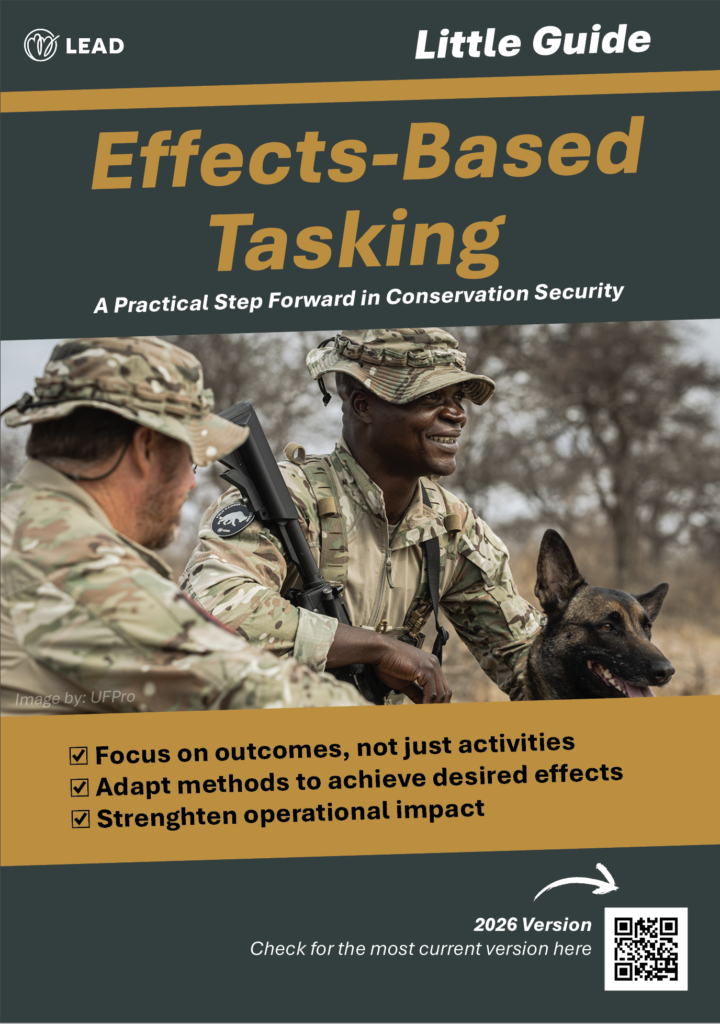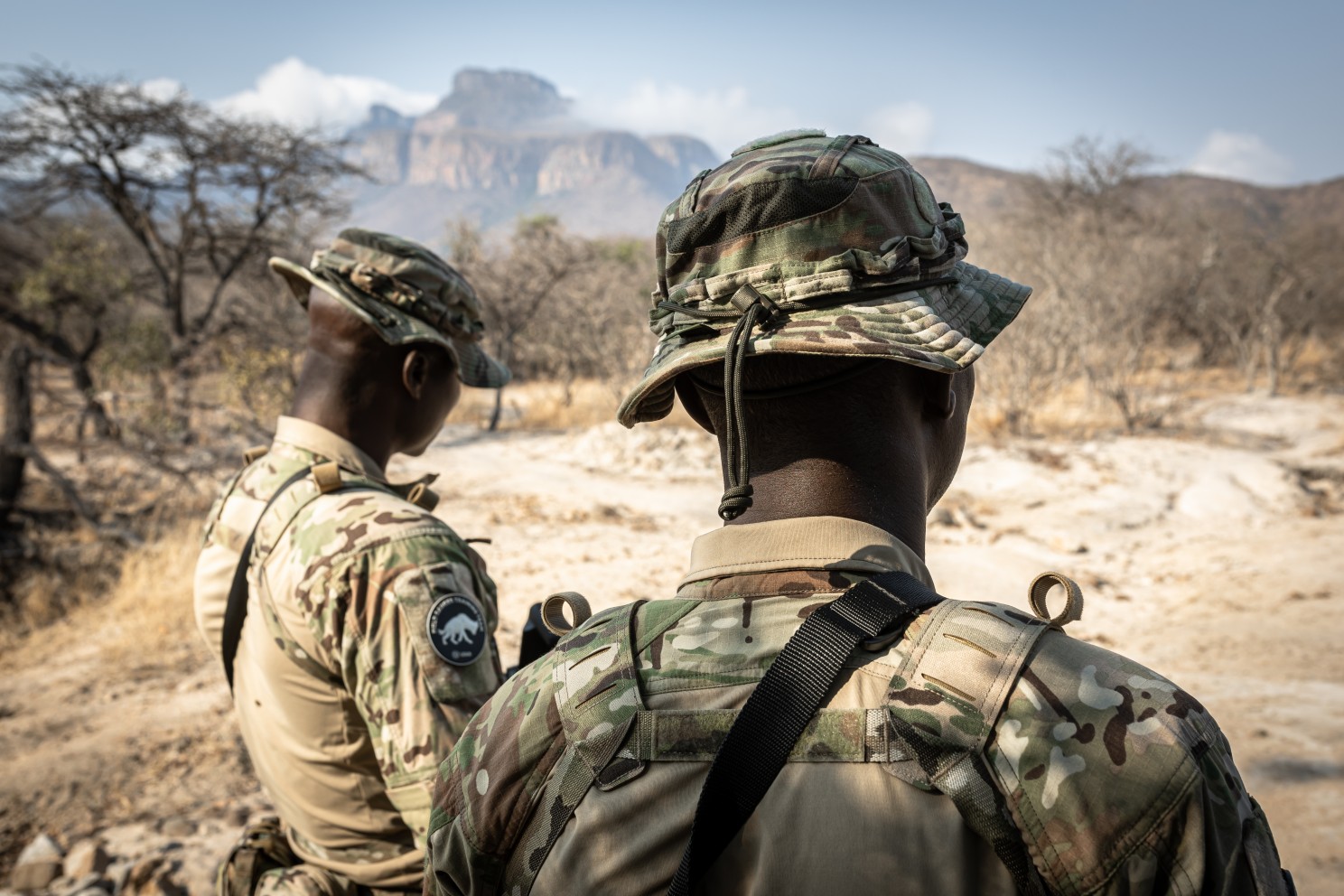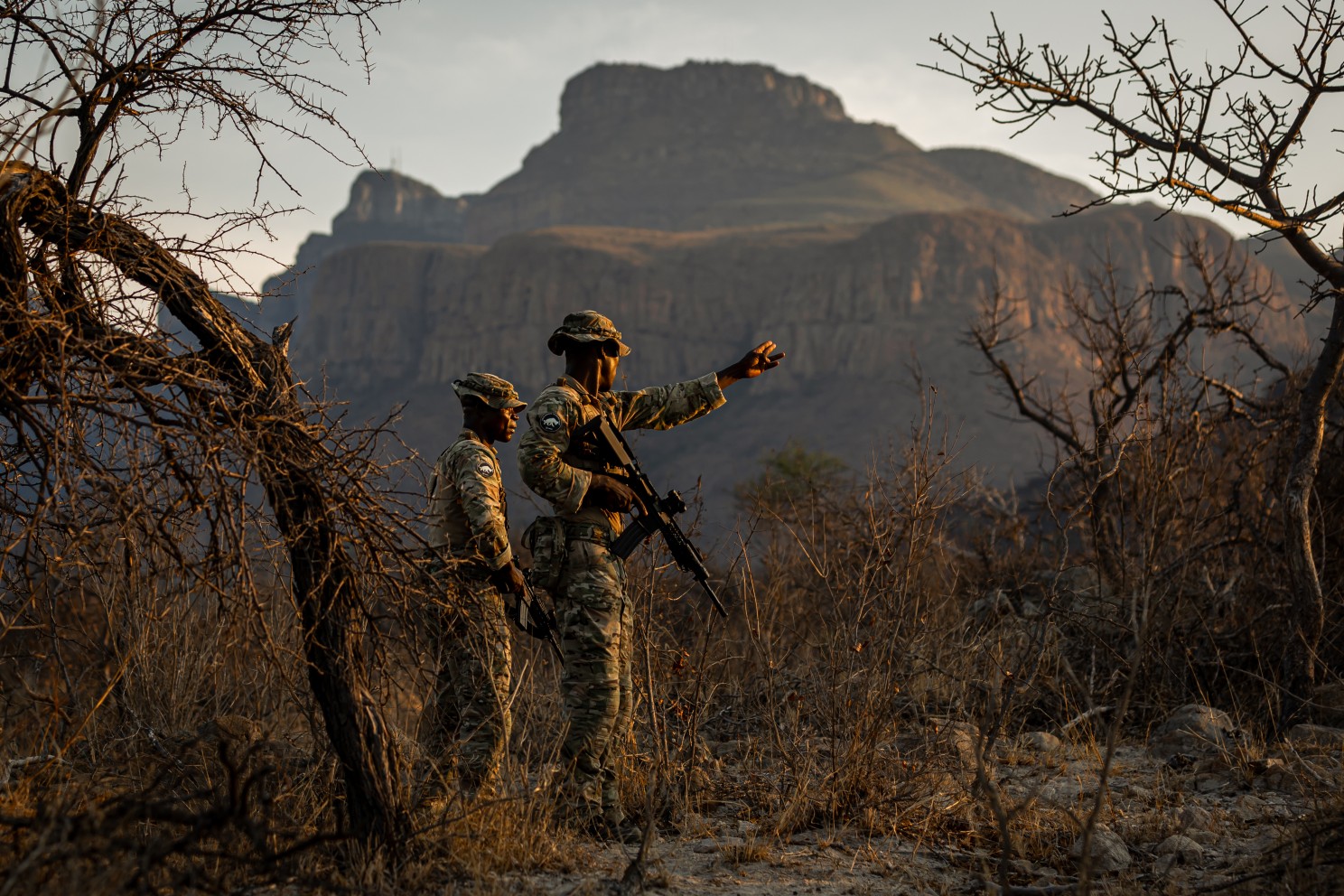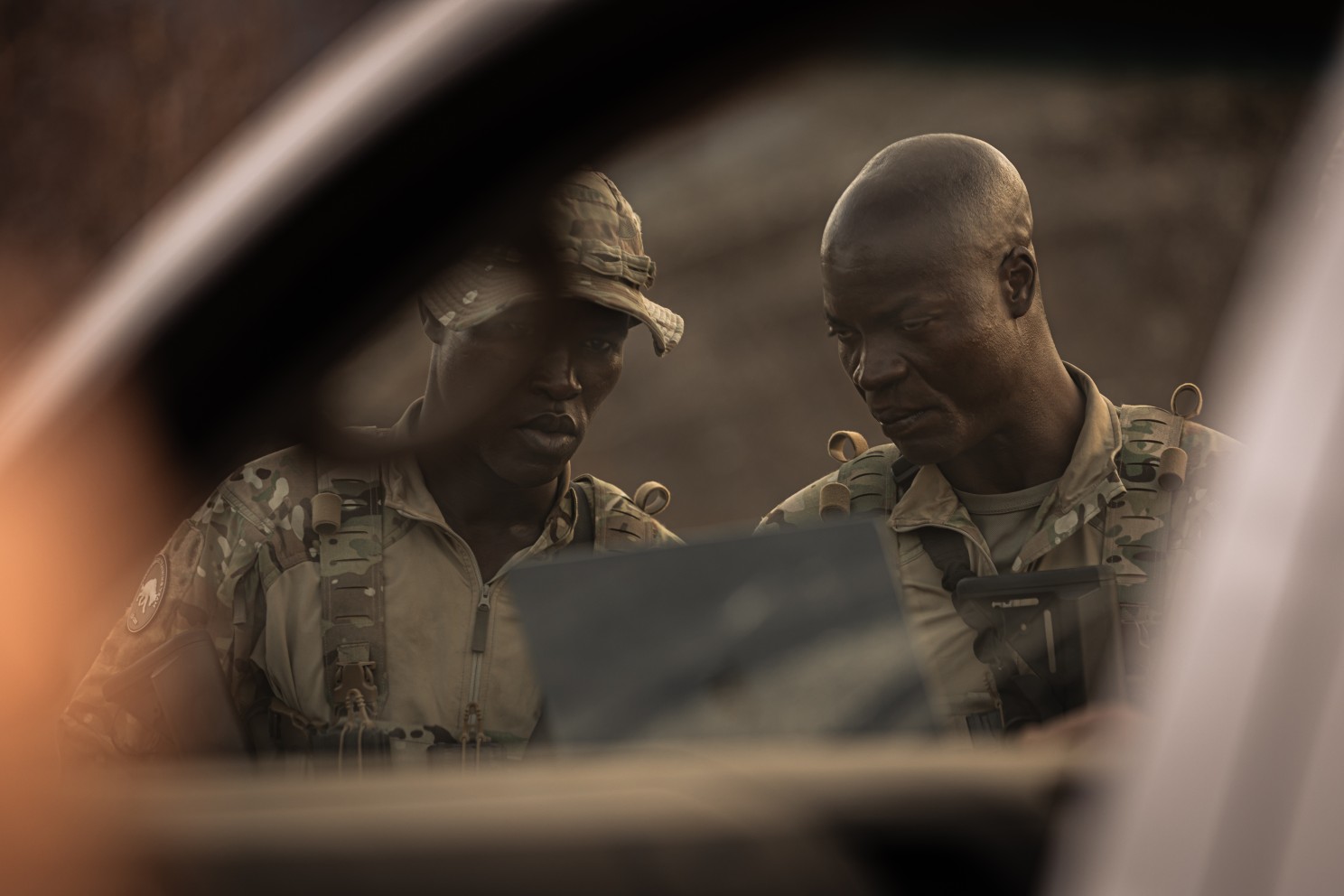Stay up to date with the latest news from LEAD Conservation
Stay up to date with the latest news from LEAD Conservation
Effects-based tasking helps turn daily patrol work into deliberate impact. Instead of focusing only on movement and activity, this guide shows how to define the effect you need, choose the right methods, and adapt when conditions change. It is written in clear, practical language and grounded in real field experience.

Version: 2026
Size: 4MB
Download the full 2026 draft edition of Effects-Based Tasking here:
Many conservation security teams still organise their work around activities. Patrols are scheduled, areas are assigned, distances are covered, and reports are completed. On paper, this appears productive, yet on the ground the underlying patterns often remain unchanged. Offenders adapt, communities adjust, and operational routines become predictable. Integrated Threat Reduction (ITR, you can find the document at the Center for Problem-Oriented Policing : https://tinylink.net/0pOMW) was developed to help organisations break this cycle. By shifting the focus from activities to outcomes, ITR encourages teams to shape behaviour, influence conditions, and support long-term stability. Effects-based tasking is one of the operational mechanisms that makes this shift possible.
Traditional tasking tells a team what to do: patrol this area, set an ambush here, conduct a checkpoint there, or engage that community. These instructions describe methods, but they do not specify what must change. Effects-based tasking begins with a simpler and more precise question: what outcome do we need to achieve today? Once the effect is clear, teams select the most appropriate method for their context. This approach improves clarity, encourages flexibility, and ties daily work directly to threat reduction.

Not limited to these, but these effects are suitable across all three ITR tiers and create a shared operational language that links ranger activity to outcomes and shapes offender behaviour:
Detect refers to finding unlawful activity, conditions, spoor/sign people, or risks. A drone identifying cattle entering a restricted woodland, or footwear impressions near a waterhole found after rain, are practical examples of this foundational effect.
Deter reduces the likelihood of unlawful activity by increasing the perceived risk of detection or response. Visible patrols along an entry route or fence line, or a reliable reporting chain that discourages bushmeat hunting, both create this behavioural effect.
Disrupt interferes with offenders’ ability to operate. Removing snares from a poaching corridor, conducting unannounced checks that interrupt charcoal movement, or flying a drone over a known entry point at night are examples of breaking operational routines and reducing opportunities.
Reassure strengthens confidence among communities, partners, and lawful users that the area is professionally managed. Structured community contact in conflict-prone areas often reduces tension and improves early reporting.
Secure stabilises a scene to prevent escalation, protect evidence, or stop further harm. A team securing a carcass site after a gunshot report until investigators arrive illustrates this effect in practice.
Investigate involves gathering facts, evidence, and understanding the drivers behind a threat. Rangers documenting footprints, cartridge cases, and drag marks around a carcass to support a formal investigation exemplifies this.
Influence behaviour builds lawful practice through presence, communication, and engagement. When herders adjust grazing patterns voluntarily due to consistent engagement, the effect has been achieved.
Resolve brings incidents to a safe, lawful conclusion. Stopping an illegal logger, seizing poaching tools or wildlife products, and handing over the case without unnecessary escalation demonstrates this outcome.
Prevent reduces the likelihood of future incidents by addressing conditions and root causes. A structured grazing agreement that reduces seasonal incursions is prevention in action.
Interdict, used when appropriate, stops unlawful items, wildlife products, or people from moving through a space. A static interdiction that intercepts bushmeat before it reaches the market is an example of targeted interdiction.

These effects are not tied to specific tiers; rather, they apply across reactive, proactive, and preventive operations. As landscape stability changes, the balance of effects shifts with it. The strength of this catalogue lies in its ability to create a shared operational language, link ranger activity to offender decision-making, guide planning and debriefing around outcomes rather than activities, and provide a practical mechanism for applying ITR in daily operations.
Effects-based tasking improves clarity because a tasking built around effects provides direction and intent rather than simply assigning movement. For example, a team deployed with detection as a primary effect and deterrence as a secondary effect, framed within the context of livestock incursions after rainfall, understands both the purpose of the deployment and what success looks like. It shifts the conversation from “where to walk” to “what must change.”
It also aligns operations with offender behaviour. Offenders respond primarily to the likelihood of being caught, the speed of response, and the consequences if caught. Effects map cleanly onto these deterrence elements. Combinations such as detection, investigation, and resolution increase certainty; detection, securing a scene, and resolving incidents increase celerity; and secure, investigate, and resolve support lawful severity. Thinking in effects therefore shapes how offenders make decisions.
Another advantage is that it makes adaptation easier and more honest. When teams understand the required effect, they can choose the most suitable method. Detection can be achieved through observation posts, covert or overt patrolling, tracking or K9 pursuit, community information collection, or any variation or combination of these. If the method stops producing the effect, it can be changed without resistance or attachment to routine. The team is tied to the outcome, not the method.
Effects-based tasking prevents repetitive patterns. Routine creates predictability, and predictability is exploitable. Asking daily what needs to change, which building blocks can achieve it, and which option is simplest and safest breaks the habit of repeating the same patrol routes with diminishing impact.
It strengthens the professional judgement of team leaders by giving them autonomy within clear intent. Rather than applying standardised methods blindly, they match their approach to terrain, weather, team condition, community dynamics, offender activity, and available assets. This reflects disciplined professional policing rather than rigid templating.
Effects-based tasking also integrates naturally with ITR. Although the effects remain constant across tiers, different tiers place different emphasis on them. Reactive work focuses heavily on detection, securing scenes, and resolving incidents. Proactive work emphasises deterrence, disruption, and influencing behaviour. Preventive work leans into reassurance, investigation, and prevention. Effects-based tasking makes these shifts practical and intuitive.
Finally, it makes measurement more meaningful. Instead of counting kilometres or numbers of patrols, teams assess whether deterrence increased, detection improved, response times shortened, investigations strengthened case outcomes, or conditions shifted toward prevention. This anchors operational work to organisational impact.

Organisations do not need to overhaul their systems to adopt effects-based tasking. A pragmatic approach is to begin by introducing the language and using it in planning, briefing, execution, and debriefing. The first step is agreeing on effects that describe outcomes rather than activities. These effects then anchor taskings, orders, and team leader estimates. Rather than assigning patrol types, the Ops Room sets the primary and secondary effects for each deployment. Team leaders then select methods suited to the terrain, threat, and conditions they face.
Over time, this shifts organisations away from routine, activity-based deployments and towards targeted, outcome-driven operations. Reporting becomes clearer, as teams can explain whether deterrence increased, detection improved, or prevention was strengthened. Adaptation becomes easier, decision-making becomes more deliberate, and operations become more resilient to offender behaviour.
For organisations seeking support to implement this approach, LEAD Conservation can assist. We help define the effects catalogue, redesign briefings and debriefings, train team leaders in effect-driven decision-making, and support Ops Rooms in integrating effects into planning cycles. Crucially, we remain on the ground long enough to ensure the system becomes internalised and practical in real conditions. The aim is not to impose a new doctrine, but to help organisations establish a simple, elegant operational rhythm that fits their landscape, their people, and their threat environment – bringing them closer to the long-term logic of Integrated Threat Reduction.
(All images by our friends at UFPRO)
We are proud to share that Integrated Threat Reduction (ITR)—developed by LEAD Conservation’s Andrew Lemieux and Boris Vos—has been recognised by the Arizona State University Center for Problem-Oriented Policing (POP Center) as a recommended resource for addressing wilderness problems.
The POP Center is a global reference point for practical, evidence-based approaches to crime and harm reduction. Their inclusion of ITR signals growing recognition that protected areas and conservation landscapes face complex threat environments that demand structured, long-term solutions—not just reactive responses.
ITR is built around three tiers of threat reduction: reactive, proactive, and preventive. It integrates problem-oriented policing methodologies, human rights principles, and frontline conservation realities into one clear and adaptive model.
The inclusion of ITR on the POP Center site means park managers, analysts, and operational leads now have access to a framework that was built from the ground up for conservation—by people who have walked the ground, listened to the rangers, and designed systems for the field.
This milestone is both a recognition and a responsibility. We will continue to refine and expand ITR based on practitioner feedback, training outcomes, and long-term impact in the places that matter most.
You can access the resource via the POP Center’s official page:
https://popcenter.asu.edu/content/resources
For inquiries, collaborations, or implementation support, please contact:
info@leadconservation.org
The LEAD team is proud to highlight innovative snaring prevention work done by Indonesia’s Ministry of Forestry and Environment and their partner WCS-Indonesia for which they won the 2024 Herman Goldstein Award for Excellence in Problem Solving. Their problem-oriented project targeting snaring in Way Kambas National Park was able to reduce snaring by more than 80% by speaking to hunters, learning about their motivations, and developing an appropriate intervention.
In the quiet that follows a briefing, when no questions are asked and no clarifications are sought, there is often more at play than indifference or uncertainty. There is history. And in many African ranger teams, that history is written in corporal punishment, in systems of education where fear replaced curiosity and obedience was demanded, not earned.
The Southern African Wildlife College (SAWC), a premier institution for conservation training in the region, has added the Foundations of Problem-Solving e-course—developed by LEAD Conservation—to its growing suite of extra-curricular offerings for learners. The course introduces a structured approach to tackling complex conservation challenges and is fast becoming an essential learning pathway for aspiring protected area professionals.
These partners are responsible for the practical application of the ITR framework on the ground. They work directly with local teams to roll out and integrate ITR strategies into daily operations.
We collaborate with these organisations for their expertise, research, and insights that help shape and refine the Integrated Threat Reduction (ITR) framework. They play a critical role in developing strategies, new tools, and training modules, as well as sharing best practices.
Support partners assist with resources, funding, logistics, and additional services that complement the ITR rollout. They help ensure smooth operations and fill gaps that may arise during implementation.